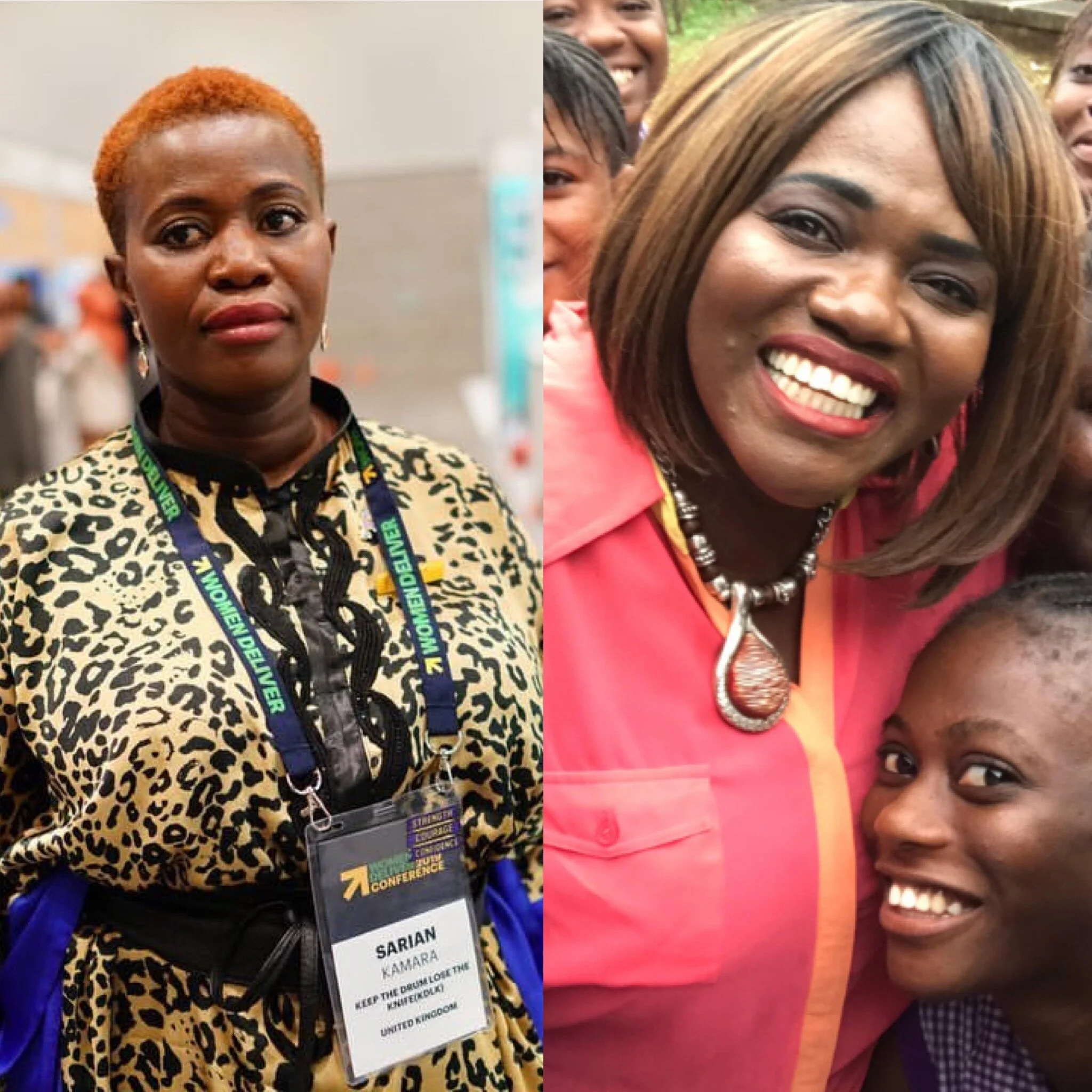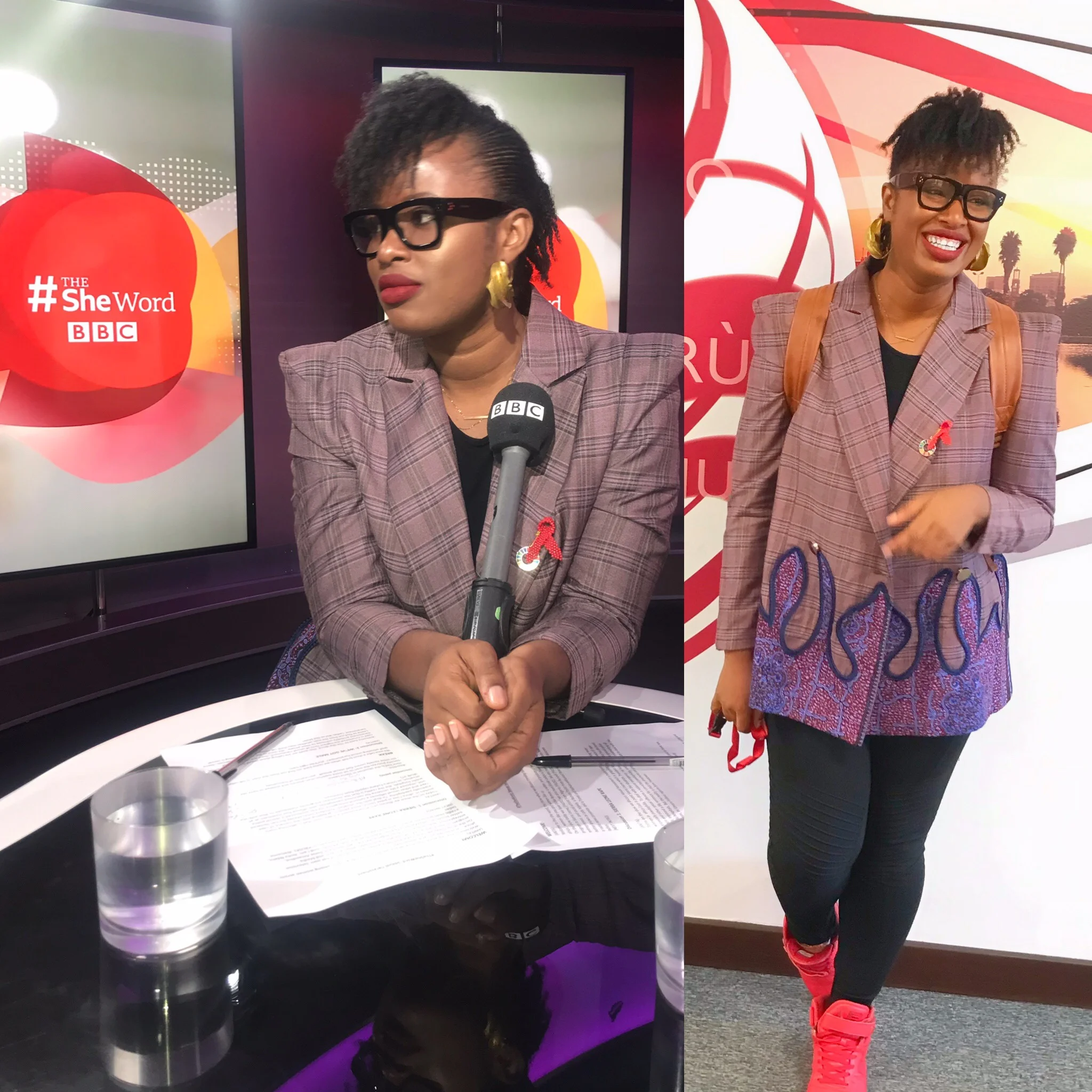"We need 'period empathy' for girls in school and women at work!" - Vickie Remoe on BBC Africa #TheSheWord [Video]
We have all been conditioned, women as well as men to be silent on menstruation but the less talk we do, the more harm we cause. Menstrual Health Management (MHM) is crucial for the health and overall well being of girls and women. An estimated 25% of the world’s population (girls & women aged 15-49) experience menstruation at any given time. BBC Africa #TheSheWord hosted a panel discussion on Menstruation but before we get to that here is some background on why this conversation is absolutely crucial.
According to the World Health Organisation, MHM includes both menstrual hygiene management (MHM) as well as the broader systemic factors that link menstruation with health, well-being, gender, education, equity, empowerment, and rights.
MHM is a right and matters to the achievement of several Sustainable Development Goals including; SDG3 - Good Health and well-being, SDG4 - Quality Education, SDG5 - Gender Equality, SDG6 - Clean Water and sanitation, SDG8 - Decent Work and Economic Growth, SDG12 Responsible consumption and Acknowledgments.
For girls and women in the developing world, period and menstruation shame and stigma is one more way in which females are discriminated against and treated as second class members of their families, communities, and countries.
Girls in Sierra Leone, like others on the continent experience shame and stigma around menstruation, and most importantly do not have access to WASH facilities at home or in school to experience their periods in dignity.
#TheSheWord - Menstruation Panel
Last week, I appeared on BBC Africa’s #TheSheWord on a panel discussion on Menstruation. Below are my contributions, you can watch the full video.
From the family setting, there is so much mystery and myth around this thing that is going to happen to your body at some time. Nobody ever really gives you the facts. I got my period when I was 11 years old, it was a sports day, I knew what periods were, that I would bleed once a month but I didn’t understand the biology of what was happening to my body.
There is definitely a stigma. This idea that when you’re on your period you’re unclean or dirty we hear it on the religious end and the traditional and cultural end. So no matter where you are, even if your parents at home and in school they’re teaching you this content, if in the society at large there exists these myths, that’s where the shame comes from. That’s why you don’t want people to know you’re on your period, that’s why you hide your pad.
Girls and boys need to be socialized differently, to have empathy and education about periods and menstruation so that everybody is empowered. So that your brothers are okay going to buy tampons and pads.
If as a woman you feel shame and stigma you may not be able to verbalize or communicate your needs to your partner, to say when I’m on my period this is how I feel, and this is what I need. So what men need to do is ask. Which is why education on both parts is very important. If as a man you know that every woman has a different cycle, hormonal changes…when you come into a new relationship the mature thing to do is say ‘babe what do you need? Sweets, savory, are you even hungry when you’re on your period? Are we having sex?…Ask, then we can navigate that.
As women, whenever we complain about pain period, whenever we verbalize pain, even if its not period pain…anytime you say you’re in pain and you’re unable to do what society expects you to do…because you’re acknowledging that you’re a human being, your pain is seen as illegitimate, that you’re weak. As a woman, it is your responsibility to be in pain and to suffer silently and to smile and look beautiful doing it. We need empathy for women and girls on their period. We need to acknowledge women’s rights as full human beings. So yes if I am incapacitated because of a biological function that I cannot control, my workplace needs to have empathy and needs to have a safe space for me to be able to go to my boss and say, I can’t work today.
The workplaces aren’t designed for us but we need to deconstruct that. We need to take room at the table and say as part of my contract, my welfare, and my wellbeing are important if I’m going to be productive in the office maternity leave is important. what happens when I get my period is important, not just for me but for all women. If we start making those kinds of demands then we change the game for the next woman who comes. But if we bear all our pain and suffering we make it impossible for the next generation to make it better because how are they going to change the dynamic?
- Vickie Remoe, BBC Africa #TheSheWord on the Episode: Menstruations - Why are periods different for everyone? - February 23 2020
WATCH THE FULL EPISODE ABOVE
After Thoughts
As I think through my own period experiences I realize that for most of my life my family and friends showed me period empathy. In my teens, in high school when I went to the nurse because I had cramps, the nurse took me seriously, and if I said the pain was severe enough that I needed to go home, which it was every month, my father would be called to come to take me home.
And when my father did come to get me, he never questioned my desire to go home, he just took me home. We didn’t talk about my periods in detail but he gave me the room and support and ibuprofen I needed.
In adulthood, I was also fortunate enough to be in relationships with men who showed me empathy during my periods. My first boyfriend would bring me a hot water bottle, he would make me tea and sometimes he would rub my stomach for me.
I always had pads, and tampons, and the pain medication I needed. I also had access to water, and safe ways to dispose of my pads and tampons.
Every girl and woman needs the same and that’s what brought me to “Period Empathy” - normalization and acceptance of the varied experiences and needs of all girls and women during their menstrual cycle; listen to them, believe them when they say they’re in pain and discomfort, give them access to what they need and create safe spaces for them to have their cycles without shame and stigma. And this period empathy needs to come from family, community, schools, workplaces, places of faith, and society at large.
!["We need 'period empathy' for girls in school and women at work!" - Vickie Remoe on BBC Africa #TheSheWord [Video]](https://images.squarespace-cdn.com/content/v1/58e24f343e00be0ae513d74f/1582487275433-3HRU2UPPD264ARXMMTGO/vickieremoe-sheword-bbc-sierraleone-menstruation-periodstigma-womenshealth.PNG)






